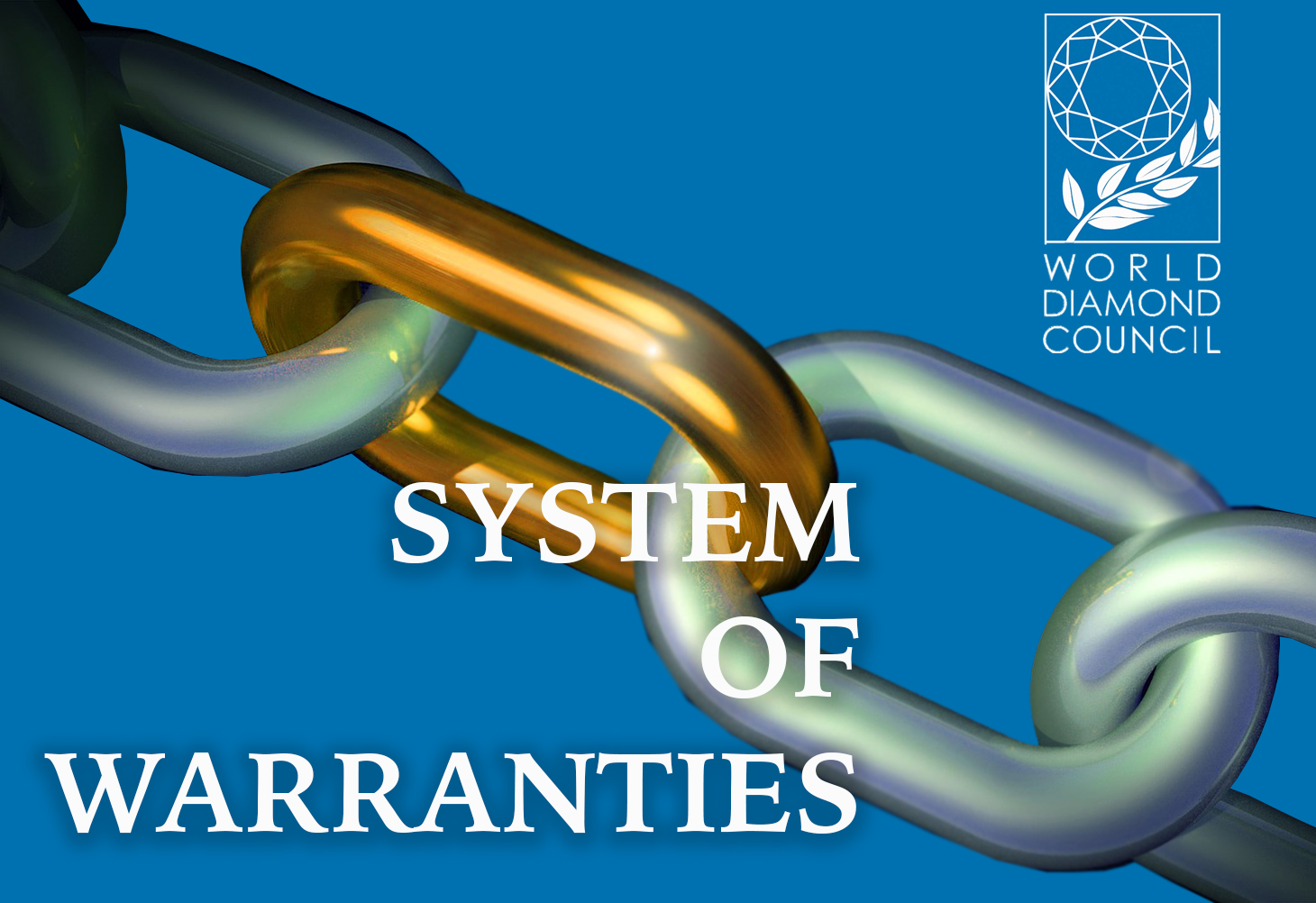TOOLKIT TO ASSIST IMPLEMENTATION OF
WDC’S REVISED SYSTEM OF WARRANTIES NEARING COMPLETION

A program initiated in 2018 to upgrade and toughen the World Diamond Council’s 10-year old System of Warranties (SoW) is nearing its launch date. At the end of January, the organization released for public review a key section of a toolkit, which is designed to assist companies involved in the diamond trade become compliant with the strengthened protocol.

The SoW Toolkit which currently is in development, includes a self assessment questionnaire to enable a firm’s management to gauge whether they have met the responsible standards listed in the WDC Guidelines. The toolkit will also include downloadable templates and documents to assist companies meet those standards.
Once complete, the toolkit will be made available on a dedicated website at no cost. It will include a self-assessment questionnaire, customized according to the number of people employed by the company and its position in the chain of supply. It will enable the firm’s management to gauge whether they have met the responsible standards listed in the WDC Guidelines, which today are an integral component of the SoW. The toolkit will also include downloadable templates and documents to assist companies meet those standards.
The original SoW actually predates the Kimberley Process Certification Scheme (KPCS), having been developed just prior to the system’s launch in January 2003 with the objective of extending its reach through both the rough and polished trades. The KPCS, of course, is only enforceable within the rough diamond trade.
From its inception, the SoW has been all-inclusive, and needs to be applied every time a rough or polished diamond changes hands, whether or not it is set in jewelry. It involves a warranty statement being added to B2B invoices or memos, assuring the next buyer that the diamonds originated from sources in compliance with the KPCS.
The original warranty statement was as follows: “The diamonds herein invoiced have been purchased from legitimate sources not involved in funding conflict and in compliance with United Nations resolutions. The seller hereby guarantees that these diamonds are conflict free, based on personal knowledge and/or written guarantees provided by the supplier of these diamonds.”
Additionally, as part of the system, each company trading in rough and polished diamonds is obliged to keep records of the warranty invoices received and the warranty invoices issued when buying or selling diamonds. It was recommended that the flow of warranties be monitored and reconciled on an annual basis by the company’s own auditors, and if asked to do so by a duly authorized government agency or during an official KP review visit, they could present the documentation to demonstrate that their firm was in compliance with the Kimberley Process rules. In Belgium, the requirement for the warranties to be included in an annual audit became a legal requirement.
The system was described as voluntary, but that was a largely misnomer, because in a major section of the trade compliance with the SoW became a condition of doing business. From its inception it became required practice for members of all diamond exchanges affiliated to World Federation of Diamond Bourses (WFDB) and members of organizations that belong to the International Diamond Manufacturers Association. It is also referenced to in the Code of Practices of the Responsible Jewellery Council (RJC) and the Responsible Sourcing Blue Book of CIBJO, the World Jewellery Confederation. Additionally, the implementation of the SoW was a required practice in De Beers’ Best Practice Principles, the ALROSA Alliance Guidelines on Responsible Business Practices, and Signet Jewelers’ Responsible Sourcing Protocol for Diamonds.

The decision to strengthen the SoW was the result of a decision by the WDC’s Board of Directors in June 2018. Maintaining the original version’s requirement that buyers and sellers of rough diamonds, polished diamonds and jewelry containing diamonds include a statement on B2B invoice and memos that the goods being sold are in compliance with the KPCS, it added a commitment that the buyers and sellers adhere to WDC Guidelines.
The revised declaration reads: “The diamonds herein invoiced have been sourced/purchased from legitimate sources not involved in funding conflict, in compliance with United Nations Resolutions and corresponding national laws. The seller hereby guarantees that these diamonds are conflict free and confirms adherence to the WDC SoW Guidelines.”
The SoW Guidelines stresses the need for buyers and sellers of diamonds must observe the implementation of the KPCS, as it is expressed in the KPCS Core Document, KP Administrative Decisions and KP Guiding Documents. Furthermore, they are expected to understand and voluntarily implement universally accepted principles on human and labor rights, AML and anticorruption measures, as reflected in the following documents:
- UN Guiding Principles on Business and Human Rights;
- UN Convention Against Corruption;
- FAFT 40 Recommendations on Money Laundering for Dealers in Precious Metals and Stones; and
- ILO Declaration on Fundamental Principles and Rights at Work.
This provides the revised SoW with a scope that is significantly broader that the KPCS.
The WDC is providing a period of time for the revised SoW to be phased in, with the soon-to-be-released toolkit intended to help participants in the value chain make the transition. By 2023 all new diamonds transaction are expected to include the revised warranty statement.





